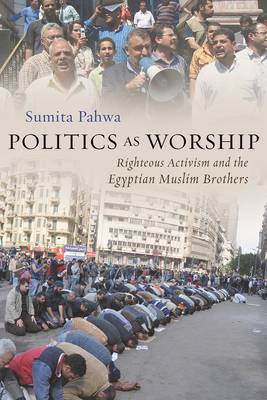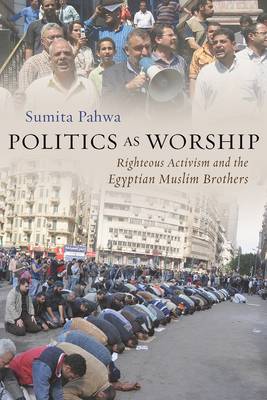
- Afhalen na 1 uur in een winkel met voorraad
- Gratis thuislevering in België
- Ruim aanbod met 7 miljoen producten
- Afhalen na 1 uur in een winkel met voorraad
- Gratis thuislevering in België
- Ruim aanbod met 7 miljoen producten
Omschrijving
Why do leading Islamist movements like the Egyptian Muslim Brothers embrace electoral politics while insisting that their main goal is "working for God," and how do they reconcile political with spiritual goals? Expectations that tension between political and religious organizing would pull the movement apart were not realized when the Brothers achieved electoral success following Egypt's 2011 uprising. Instead, movement "conservatives" rather than "moderates" came to dominate political work; and political activists framed the movement's electoral mandate as both popular and divine--arguing that campaigning, policy, and legislation could all be forms of worship.
To understand how the movement threaded these disparate missions, Sumita Pahwa examines the movement's internal debates on preaching, activism, and social reform from the 1980s through the 2000s. She explains how framing political work as ethical conduct, essential for building pious Muslim individuals as well as an Islamic political order, became central to the organization's functioning. Through a comprehensive analysis of texts, speeches, public communications, interviews, and internal training documents, Pahwa offers a constructivist argument for how the movement has folded religious ideals into political discourse, enabling the leadership to shift the boundaries of justifiable and righteous action. Melding these aims, the Egyptian Muslim Brotherhood built an influential Islamic political project and a unified identity around "working for God."Specificaties
Betrokkenen
- Auteur(s):
- Uitgeverij:
Inhoud
- Aantal bladzijden:
- 296
- Taal:
- Engels
- Reeks:
Eigenschappen
- Productcode (EAN):
- 9780815638247
- Verschijningsdatum:
- 25/11/2023
- Uitvoering:
- Paperback
- Formaat:
- Trade paperback (VS)
- Afmetingen:
- 152 mm x 229 mm
- Gewicht:
- 435 g

Alleen bij Standaard Boekhandel
Beoordelingen
We publiceren alleen reviews die voldoen aan de voorwaarden voor reviews. Bekijk onze voorwaarden voor reviews.












